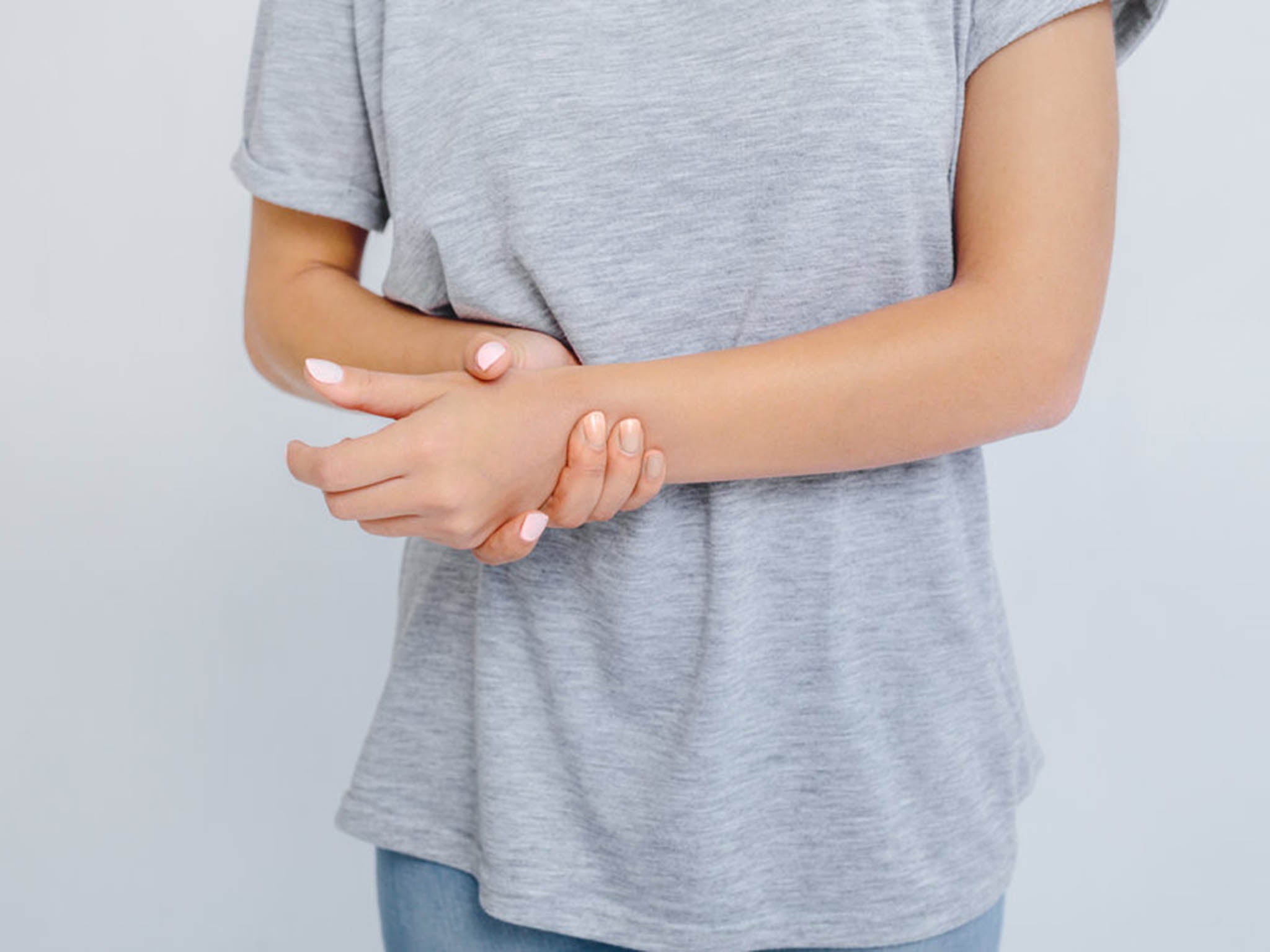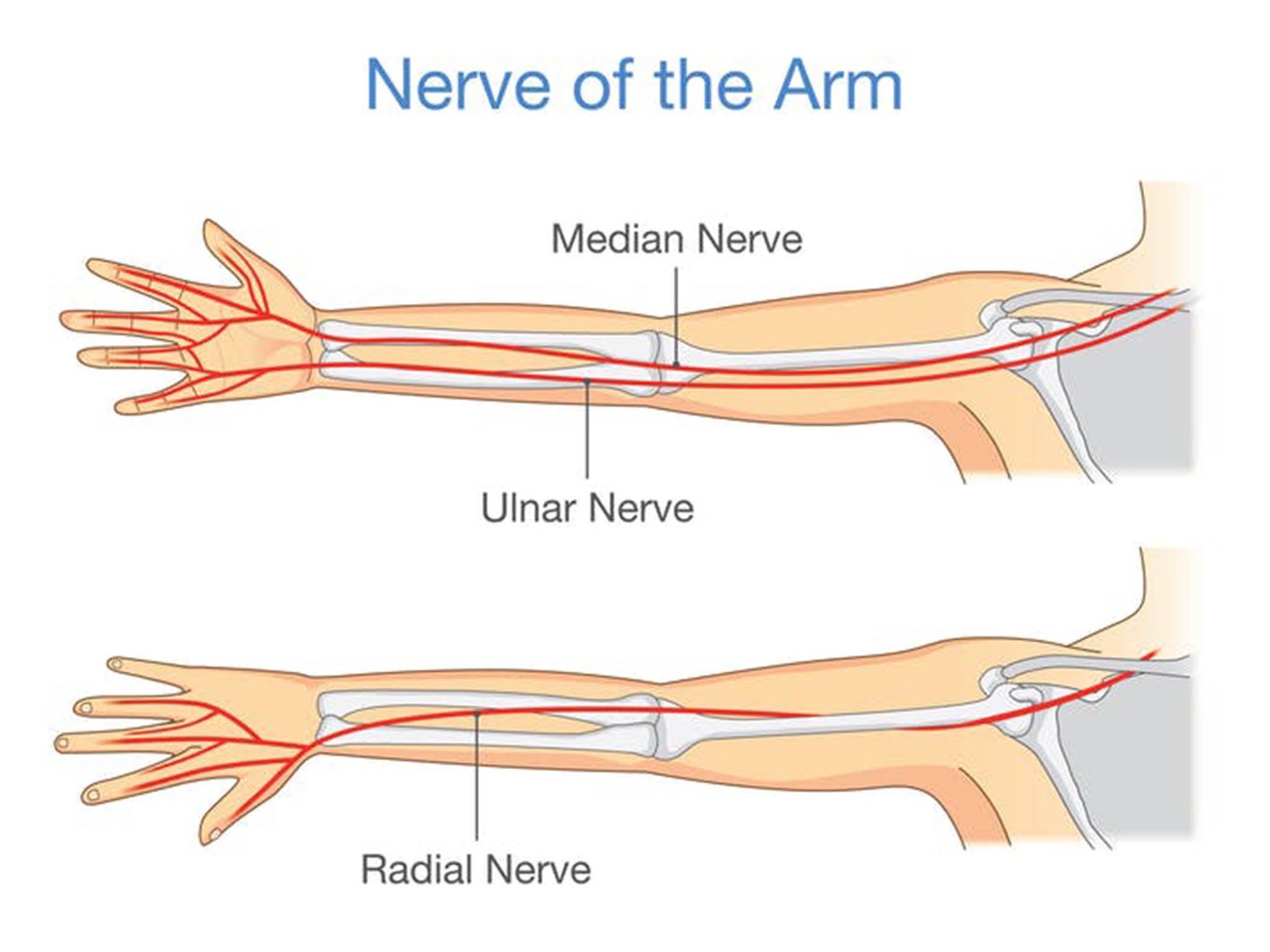Why we shouldn't always ignore the feeling of pins and needles
Pins and needles are a warning to tell us to move our limbs about, because long-term nerve entrapment can cause permanent damage

Your support helps us to tell the story
From reproductive rights to climate change to Big Tech, The Independent is on the ground when the story is developing. Whether it's investigating the financials of Elon Musk's pro-Trump PAC or producing our latest documentary, 'The A Word', which shines a light on the American women fighting for reproductive rights, we know how important it is to parse out the facts from the messaging.
At such a critical moment in US history, we need reporters on the ground. Your donation allows us to keep sending journalists to speak to both sides of the story.
The Independent is trusted by Americans across the entire political spectrum. And unlike many other quality news outlets, we choose not to lock Americans out of our reporting and analysis with paywalls. We believe quality journalism should be available to everyone, paid for by those who can afford it.
Your support makes all the difference.Everyone has experienced it: that tingling, prickling feeling you get in your limbs when you’ve been sitting or lying in one position for too long. Medical people call it paresthesia, but to the rest of us it’s “pins and needles”. And here’s how it works.
Our bodies contain miles of nerves and blood vessels. Most people know that nerves carry messages as electrical impulses to and from our brain, and blood carries oxygen and nutrients to our organs. What people are less familiar with is the fact that nerves also need blood vessels and blood vessels need nerves.
Nerves are made of living cells and there are special blood vessels called vasa nervorum that deliver oxygen and other nutrients to them. Blood vessels also need nerves to ensure the body is kept at the right temperature and the right amount of blood gets to where it needs to be. Nerves help change the diameter of blood vessels. For example, when we run, nerves widen blood vessels so that more blood can get to the muscles in our arms and legs.
Any compression of nerves or the blood vessels supplying them interferes with the ability of the nerves to transmit impulses back to the spinal cord and brain, so the brain interprets the lack of signals or abnormal signals as pins and needles in the affected area. Long-term compression can progress from pins and needles to more permanent nerve damage or dysfunction.
When pins and needles gets serious
Some forms of pins and needles are caused by occupation or lifestyle, such as carpal tunnel syndrome (CTS). This occurs when the median nerve, which passes through the carpal tunnel (formed by the carpal bones in the hand and a fibrous band of tissue forming a bridge across the bones), becomes compressed by inflamed tendons that also pass through this “tunnel”.
People who use equipment that vibrates, such as pneumatic drills or orbital sanders, are at increased risk of CTS, as are people who play musical instruments or use computer keyboards for long periods of time. These kinds of activities cause stresses and strains through the wrist and carpal tunnel that can pinch the median nerve.

Carpal tunnel syndrome symptoms can be temporarily relieved by shaking the affected hand. But in the longer term it can disappear on its own through ceasing the aggravating activity or by wearing a wrist splint to keep the wrist straight. In some cases, surgery is needed.
Lifestyle induced
While CTS is usually caused by hard work, Saturday night palsy, as the name suggests, usually results from letting your hair down. People get Saturday night palsy when they “fall asleep” with their arm hanging over something, like a chair, bar stool or edge of the bed. Initial pressure causes pins and needles, but this can progress quickly to longer-term damage in the form of palsy.
Saturday night palsy affects the radial nerve in the arm (see diagram above). It is usually damaged at its location next to the biceps muscle and is the most commonly injured nerve in the arm. One study showed more than 70 per cent of reported injuries involved alcohol in some form, and over 75 per cent of people with the condition compressed the nerve for more than two hours, resulting in recovery that took weeks. Evidence shows that this type of alcohol-induced injury is also on the rise.
The same nerve can be injured in another type of palsy. This one is called “honeymoon palsy”. It happens when your partner lays or sleeps on your arm or leg for so long that it causes palsy.
Tight jeans
“Tingling thigh syndrome” and “tight jean syndrome” are terms for a medical condition known as meralgia paresthetica. It is experienced as pins and needles in the outer part of the thigh. These result from compression of a nerve called the “lateral cutaneous nerve of the thigh” – meaning the nerve supplying the skin of the lateral thigh.
There are many causes, most widely seen are those associated with trousers that are too tight around the waist; carrying a wallet, keys or phones in pockets; as well as impact to the thigh during sports, such as the asymmetric bars.
While many of the examples listed above are temporary, there are some instances where pins and needles shouldn’t be ignored. For example, tingling in the lips can indicate a food allergy or a stroke. Tingling in the hands and feet can also indicate mineral or vitamin deficiency. So pins and needles is a way of telling you that something is wrong, although most of the time, the cause is benign.
Adam Taylor is a director of the clinical anatomy learning centre and senior lecturer at Lancaster University. This article first appeared on TheConversation.com
Join our commenting forum
Join thought-provoking conversations, follow other Independent readers and see their replies
Comments